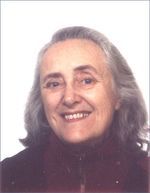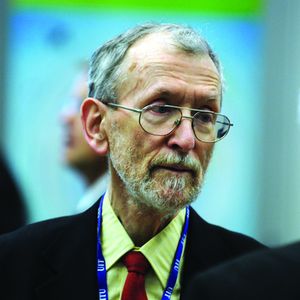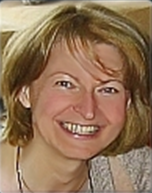| Name | Based in |
|---|---|
| Bureau | |
| Cyril Ritchie (UIA President) | Switzerland |
| Dragana Avramov (UIA Vice-President) | Belgium |
| Esperanza Duran (UIA Vice-President) | Switzerland |
| Marilyn Mehlmann (UIA Vice-President) | Sweden |
| Jacques de Mévius (UIA Secretary-General) | Belgium |
| Brigitte Motte (UIA Treasurer) | Belgium |
| Other Council Members | |
| Sheila Bordier | Switzerland |
| Tim Casswell | Canada |
| Alessandro Cortese | Belgium |
| Yves Moreau | Belgium |
| Rolf Reinhardt | Germany |
| Simone Van Beek | Netherlands |
| Judy Wickens | Belgium |
| Barrie Williams | United Kingdom |
| Marisha Wojciechowska-Shibuya | Canada |
| Johann Wolfschwenger | Austria |

Anne-Marie Boutin
France
Anne-Marie Boutin has been the President of the UIA since 1998, and a member of the Executive Council since 1994. She is also the President of the Agence pour la promotion de la création industrielle - APCI, in France, and Conseiller maître of the Cour des Comptes (French National Audit Office).
She is a member of the selection committee of the Design 21 programme of UNESCO, and also a member of advisory committees for several international art and design schools in France and abroad. Ms. Boutin is the author of numerous articles and contributions to books and catalogues on design education, design management, design strategy, design-culture and technology. She regularly participates as jury member or expert in French or international competitions and awards.
In addition, Ms. Boutin has been: a member of the Executive Board (1982-1992) and Regional Advisor (2001) of the International Council of Societies of Industrial Design - ICSID; President and Director of the French national institute for advanced studies in design, ENSCI-les Ateliers (1984-1992); an elected member of the french national commission for UNESCO (1988-1993), and, during the same period, a consultant to the OECD for the evaluation of innovation policies and education systems and of the World bank for development policies; a member of the design expert group of the European Commission (1985 -1997); expert delegated to the Director of the Ecole Nationale d'Administration (French Institute for Civil Servants) and responsible for international affairs (1970-1979).

Tim Casswell
UK
Tim Casswell has been a Vice-President of the UIA since 2005, and a member of the Executive Council since 2003. He is also a regular facilitator at the UIA Associate Members meeting and other meeting industry events. Tim is the Founder and Director of Creative Connection.
Tim is an independent coach, consultant and facilitator to a variety of organizations and conferences (local, international, commercial, non-profit) in relation to their strategic development and human relations skills. For over 25 years, Tim has been fascinated by the art of personal and organizational change. He has worked with local communities in India and Indonesia, public sector bodies and international associations in Europe, international corporations in the UK and Canada and international conferences all over the world, including the Global Forum (Rio de Janeiro, 1992). He is equally at home facilitating large group participation, coaching teams intent on enhancing the quality, creativity and vitality of their relationships, or coaching on a one to one basis.
Tim was previously employed at the UIA editing the "Transformative Conferencing", segment of the 1986 edition of UIA's Encyclopedia of World Problems and Human Potential. Two programmes that he has developed and delivers are "A School of Unknowing", which develops imagination, initiative, creativity and courage, and challenges the validity of strongly held beliefs, and "The Coincidence Initative", a practical mentoring programme that facilitates the development of transformative leaders. Tim has a background in sociology, psychology and community development and he brings to his facilitation work influences from theatre, graphic art, music and poetry. He is an artist in residence at the Southbank Centre.

Marilyn Mehlmann
Sweden
Marilyn Mehlmann is a Vice-President of the UIA since 2005, and a member of the Executive Council since 2003. She is also the General Secretary of GAP International since 1995, which is concerned with community-based approaches to sustainable development in nine-teen countries.
Ms. Mehlmann, is a partner and senior consultant with the Fenix Group (Sweden), focusing on sustainability, leadership and social change processes. She is also a founder member and board member of the Swedish Community of Learners. Her experience combines backgrounds in psychosynthesis, Enspiriting, and empowerment to create new fora for personal and professional development, including a coaching 'master class' currently offered in four countries.
In addition, Ms. Mehlmann is a Member of the Advisory Boards of People-Centered Development Forum, Seattle, and of Gaia University, Germany and Mexico. She was previously involved with product development at IBM, and with action research at the Swedish Centre for Working Life. Ms. Mehlmann is the author of numerous publications.

Cyril Ritchie
Switzerland
Cyril Ritchie is a Vice-President of the UIA since 1998, and has been a member of the Executive Council since 1984. He has served as the UIA Representative to the United Nations in New York, Geneva and Vienna since 1988, and also to other international agencies and NGOs.
Mr. Ritchie is the President of the Federation of International NGOs in Geneva (FIIG), of CoNGO, and of the Council of Europe INGO Grouping "Civil society and democracy in Europe", meeting regularly in Strasbourg. He is also on the Steering Committee of the UBUNTU World Campaign for in-depth Reform of International Institutions, based in Barcelona, and is the Chairman of the Environment Liaison Centre International, headquartered in Nairobi.
In addition, Mr. Ritchie has been: the long-term President of the Switzerland Chapter of the Society for International Development; the Executive Director of the International Council of Voluntary Agencies (ICVA) for 14 years; the President of the 2006 International Civil Society Forum for Democracy held in Qatar; the Chair of the World Civil Society Conference (WOCSOC) in Montréal. He has participated in most of the United Nations Summits and World Conferences (Food, Environment, Women, Habitat, Nutrition, Social Development, Information, Sustainable Development )

Jacques de Mévius
Belgium
Jacques de Mévius is the Secretary-General of the UIA since December 2005, and a member of the Executive Council since November 2003. He is also a member of: the Council of Codeart (Coopération au développement de l'Artisanat); the Development Alternatives Global Advisory Council, an NGO active in the field of alternative technology transfer.
Mr. de Mévius is a member of the board and shareholder of: Rayvax (a family businesses management company); Systems Europe (rural electrification and renewable energies systems studies). Both companies are situated in Belgium. He is also a significant shareholder (together with Dr Ashok Khosla) of "Tarahaat", a network of franchised telecentre projects in India. He is also involved in the funding of a primary school in Mali, since 2006.
Hobbies: horseback riding; tennis; skiing; playing ice hockey (name of the team: "the flying turtles"); polar expeditions. He is married and has three children.

Dr Dragana Avramov
Dragana Avramov is a Vice-President of the UIA since 2017.
Education
- Ph.D. Sociology – Population Studies and Policies
- M.Sc. Sociology of Culture and Cultural Policy
- B.A. Sociology
- College degree in Journalism
Professional experience
- More than 20 years of experience as researcher in social sciences and humanities
- Expert for the European Commission, Council of Europe and United Nations
- Evaluator, reviewer, rapporteur, chair of panels and independent observer for the European Commission
- Expert for the regional and national scientific evaluation organisations: Baltic Organisations’ Network for Funding Science (BONUS), the Swedish Research Council (FORMAS), AREA Science Part Trieste, Italy, ISFOL Rome, Italy
- Former director of the Demographic Research Centre, Institute of Social Sciences
- Active in scientific associations and international non-governmental organisations (e.g. International Union for the Scientific Study of Population – IUSSP, European Science Foundation, European Association for the Advancement of Social Sciences, Union of International Associations), University of Belgrade
- Contributed to grass-root and voluntary organisations working with the disadvantaged groups (e.g. European Federation of National Organizations Working with the Homeless (FEANTSA), Day of Persons with Disabilities)